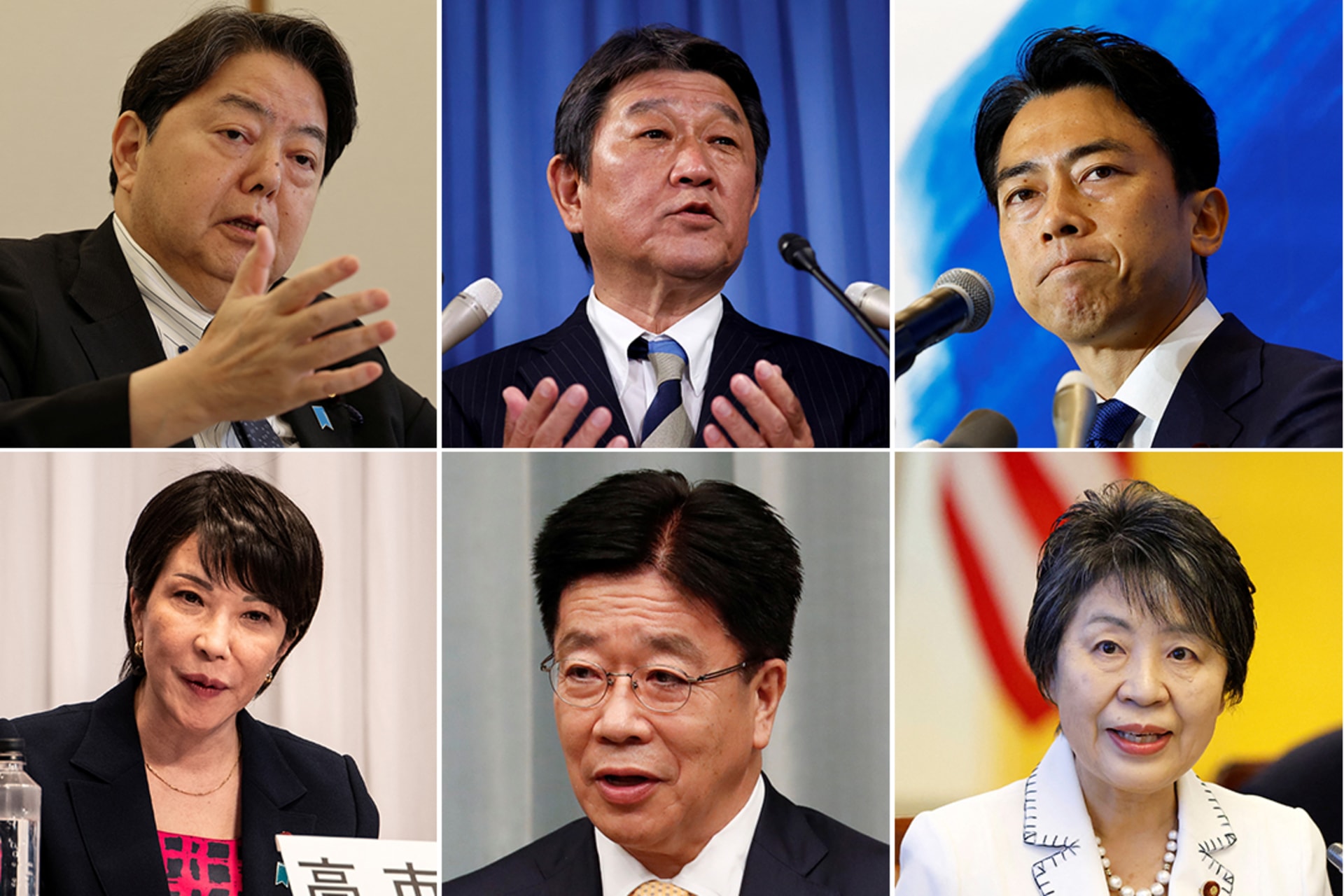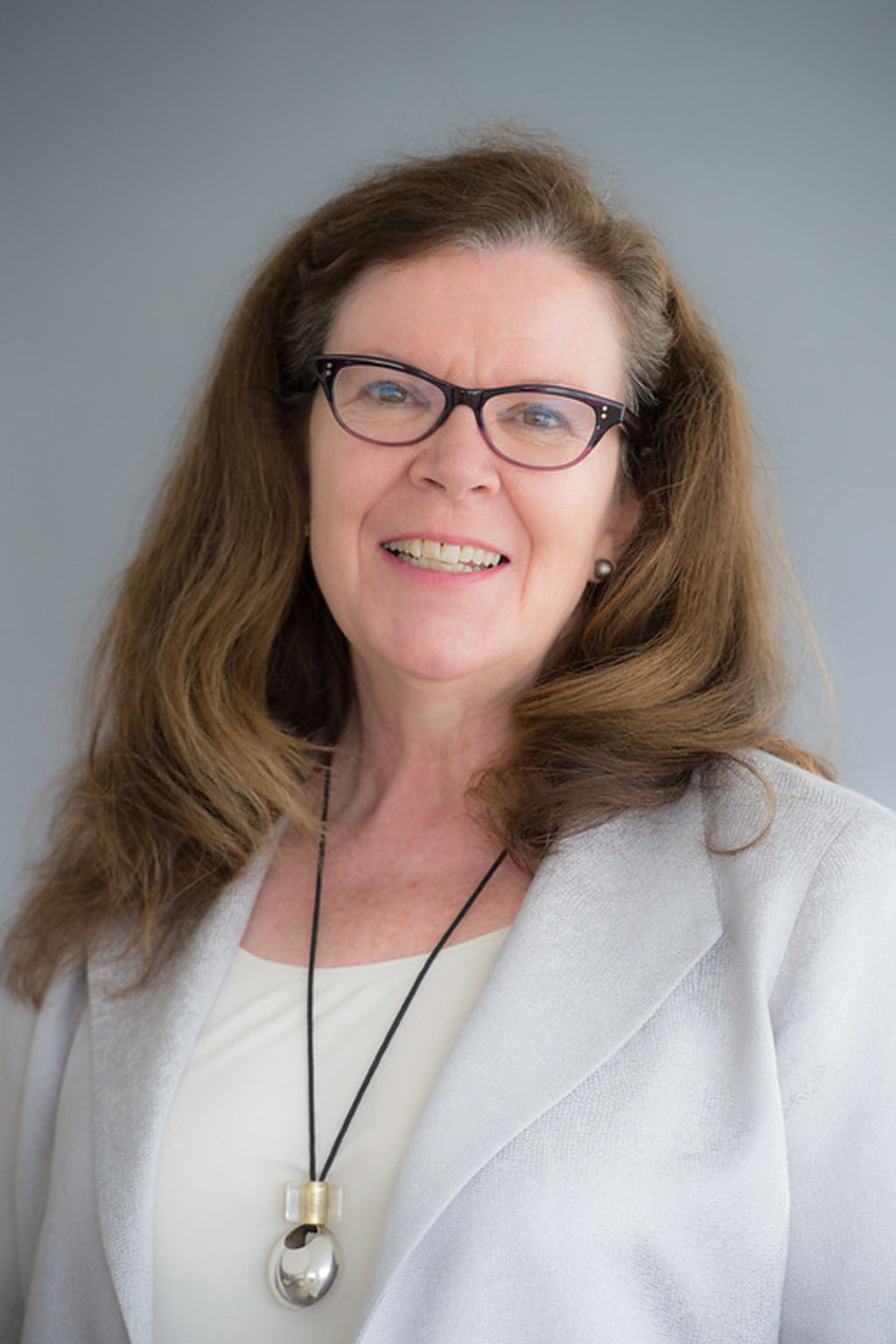The LDP Leadership Race: Six More Join, a Field of Nine
September has brought six more candidates to the race, creating the largest field of candidates in the party’s history.

By experts and staff
- Published
Experts
![]() By Sheila A. SmithJohn E. Merow Senior Fellow for Asia-Pacific Studies
By Sheila A. SmithJohn E. Merow Senior Fellow for Asia-Pacific Studies
Thursday, September 12, marks the official start of the campaign for president of the Liberal Democratic Party (LDP). September has brought six more candidates to the race, creating the largest field of candidates in the party’s history. Of the nine, two are women, two are under fifty-years-old, and all have governing experience in the Cabinet. Three are currently serving in the Kishida Cabinet.
For the next two weeks, party debates will be organized, stump speeches will proliferate, and social media will be in full campaign throttle. Some have presented formal policy statements, all of which are available on the party’s website. Ideas matter, but so too will the less predictable variable—who can regain public trust and persuade Japan’s voters that the LDP can change? Five of the nine candidates are first-time candidates for their party’s highest office.
LDP grassroots members and legislators will choose their next leader on September 27 and whether s/he can lead them to victory in the next general election. Two have been the party’s Secretary-General—Ishiba and Motegi, and thus, have led their party during national elections. Three have chaired the LDP’s Policy Research Council, which is responsible for drafting the party’s policy platform. To date, two candidates, Ishiba and Koizumi, consistently emerged as the most popular in media polling.
Two recent public opinion polls, the first conducted by NHK on September 9 and the second conducted by Reuters on September 12, give slightly different preferences for the top three contenders. The NHK poll has Ishiba at 28% in first place, followed by Koizumi at 23% and in third place, Takaichi at 9%. The Reuters poll, however, has Ishiba again in first with 24%, Takaichi in second with 22%, and Koizumi in third with 16%. Kono, in this poll, is not far behind in fourth place with 11%. The NHK poll is based on a random public survey with 1,220 respondents; the second was sent by Reuters to 506 companies, with 245 responding.
In order of their candidacy announcements, here are the final six candidates for the LDP presidency.
Hayashi Yoshimasa
Hayashi Yoshimasa, the current Chief Cabinet Secretary in the Kishida Cabinet, announced his candidacy on September 3. Sixty-three-year-old Hayashi has represented Yamaguchi Prefecture for almost thirty years. His governance experience is extensive: he has served in six Cabinets with portfolios in Defense; Economic and Fiscal Policy; Agriculture, Forestry, and Fisheries; Education, Culture, Sports, Science, and Technology; and Foreign Affairs. Within the party, he has developed governance reforms for the tax system, economic growth strategy, IT strategy, and the Transpacific Partnership.
From early on in his career, Hayashi has built extensive contacts abroad. After graduating from Harvard’s JFK School of Government, he worked on Capitol Hill in the offices of Representative Stephen Neal (D, North Carolina) and Senator William Roth (R, Delaware). In the Senate, he helped author a bill that established an exchange program between the U.S. and Japanese governments, now known as the Mansfield Fellowship Program. Until 2021, Hayashi served as the chair of the Japan-China Parliamentary Friendship Association.
This is Hayashi’s second time to run for the LDP presidency.
Motegi Toshimitsu
Motegi Toshimitsu, the current Secretary-General of the LDP, announced his candidacy on September 4. Motegi is a ten-term member of the House of Representatives from Tochigi prefecture. He has considerable governing experience and served as Minister of State for Okinawa and Northern Territories and Science and Technology Policy; Minister in Charge of Financial Services and Administrative Reform; and Minister for Economy, Trade, and Industry; Minister for Economic Revitalization and State Minister for Economic and Fiscal Policy. Motegi has led Japan’s finalization of the CPTPP as well as negotiated with the Trump Administration on a bilateral trade agreement. Finally, he served as Minister of Foreign Affairs under Prime Ministers Abe, Suga, and Kishida.
Motegi has also had party leadership posts, including the Policy Research Council and as Secretary General since 2021. He received a master’s degree from Harvard University’s JFK School of Government and worked at McKinsey and Company for eight years before running for the Japanese Diet.
At sixty-eight-years-old, this is Motegi’s first attempt at the party presidency. Motegi had his own faction within the party, the Heisei Kenkyūkai, but dissolved it in April after a bruising party deliberation about how factional dynamics hobbled reform.
Koizumi Shinjiro
At forty-three, Koizumi Shinjiro is the youngest contender for LDP leadership. He announced his candidacy on September 6, delayed due to the typhoon that made landfall in Japan. Since becoming a member of the House of Representatives in 2009, Koizumi has gained considerable popularity among LDP members and the public. Older LDP candidates have often asked “Shinjiro” to campaign alongside them in elections to enhance their appeal with women and younger voters. The charismatic son of former Prime Minister Koizumi Junichiro represents district eleven in Kanagawa prefecture, just south of Tokyo, home to Japan’s largest naval base and homeport of the U.S. Navy aircraft carrier, the USS George Washington, at Yokosuka.
Koizumi served as Minister of Environment in the Abe and Suga Cabinets. Prior to that, he had worked on the reconstruction of the damaged Tohoku region after the Great East Japan Earthquake in 2011. In the party, Koizumi led the party’s youth caucus from 2011 and built a volunteer effort to northern Japan to help young legislators understand the needs of disaster recovery. Koizumi attended Columbia University in New York for his master’s degree, and worked at the Washington, DC think tank, Center for Strategic and International Studies.
Koizumi led a delegation of LDP “next generation” politicians to Washington in 2019, where he spoke on Japan’s future challenges. This is his first run for the party presidency.
Takaichi Sanae
Takaichi Sanae is currently the Minister of State for Economic Security in the Kishida Cabinet, and she is running for the LDP presidency for the second time. Her first attempt was in 2021, and she was a strong proponent of strengthening Japan’s defense capabilities and of integrating the deterrence capabilities of the U.S. and Japan. She served in several Cabinets under former prime minister Abe, with portfolios for Okinawa and Northern Territories and Internal Affairs and Communications.
From Nara Prefecture, sixty-three-year-old Takaichi was strongly supported in her last leadership bid by former prime minister Abe Shinzo. After Abe’s death, Takaichi has become a leading conservative in the party—advocating for robust military power, revision of Article 9 of Japan’s Constitution, prime ministerial visits to Yasukuni Shrine, and opposing social change on issues such as same-sex marriage and differing surnames by married couples.
Takaichi is a graduate of the Matsushita Institute of Government and Management, and in 1987, worked in the U.S. House of Representatives in the office of Patricia Schroeder (D, Colorado.) Within the party, Takaichi served as head of the Policy Research Council from 2021 and is credited with formalizing the party’s goal of raising defense spending to 2% of GDP, a goal that Prime Minister Kishida then adopted as national policy in his 2022 strategic review.
Katō Katsunobu
Sixty-eight-year-old Katō Katsunobu was elected in 2003 from Okayama prefecture. On September 10, Katō announced his candidacy. He served as Deputy Chief Cabinet Secretary when Abe Shinzo returned to the Prime Minister’s office in 2012. He served as Minister of Health, Labor, and Welfare three times, twice in Abe Cabinets, first in 2017 and again in 2019. Prime Minister Kishida asked him to return to that post in 2022. Katō thus had responsibility for Japan’s COVID-19 response. Under Prime Minister Suga, Katō became Chief Cabinet Secretary.
In the LDP, Katō was the Chairman of the General Council in 2019 and then in 2021 chaired the Social Security Research Commission. In 2023 he took on leadership of the party effort to implement revision of the Constitution. This is his first run in the LDP presidential race.
Kamikawa Yokō
Japan’s current Minister of Foreign Affairs, Kamikawa Yokō, was the last to join the leadership race, announcing her candidacy on September 11. Seventy-one-year-old Kamikawa is serving her seventh term as a member of the House of Representatives from Shizuoka prefecture. Her first Cabinet position was as Minister of State for Gender Equality and Social Affairs in 2006 under Abe Shinzo. Subsequent governance posts include Minister of Public Records Management and National Archives, State Minister for Internal Affairs and Communications, and Minister of Justice.
Kamikawa has a master’s in public policy degree from Harvard University’s JFK School of Government. She has led several LDP party initiatives, including the promotion of women’s political participation and the Commission on the Judiciary. She also chaired the Committee on Health, Labor, and Welfare in the House of Representatives.
This is Kamikawa’s first time to enter the race for LDP president.
